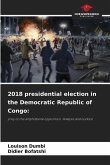The communication of local authorities has taken on a new dimension. If the practice is old, the technological evolutions and the standards lead to a renewal of the tools and the stakes of communication of the communities. Strengthening identification with the territory, informing citizens, promoting the action of the political team, the challenges of this communication are numerous. A tension arises from this plurality: how, in a democratic system, can we ensure the sincerity of the elections and reduce the phenomena of the outgoing candidate's bonus, when a local authority maintains its communication during the election period? For the legislator and the judge, it was a distinction between institutional communication and political communication. However, this distinction is not self-evident and does not erase all the difficulties. This work attempts to briefly retrace the major dynamics of local communication and to highlight the difficulties encountered during an election period.
Bitte wählen Sie Ihr Anliegen aus.
Rechnungen
Retourenschein anfordern
Bestellstatus
Storno








